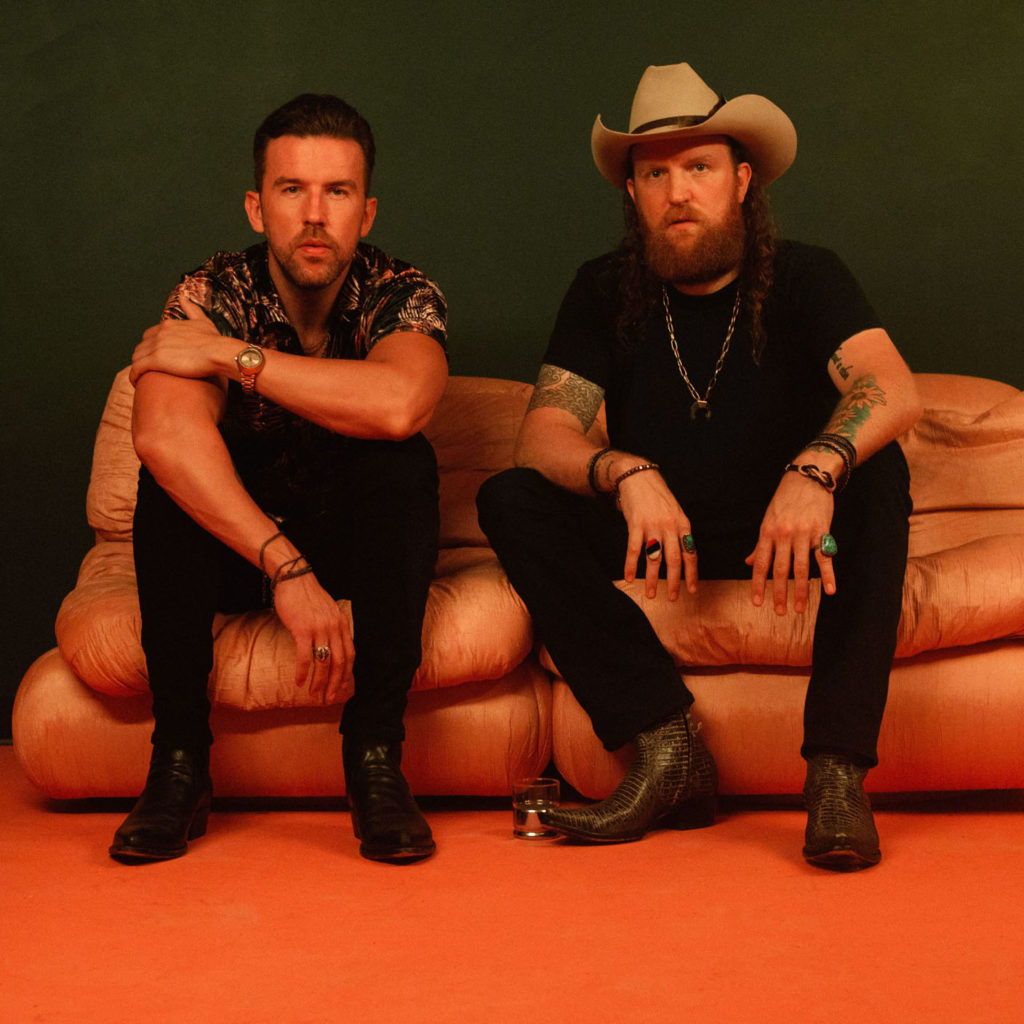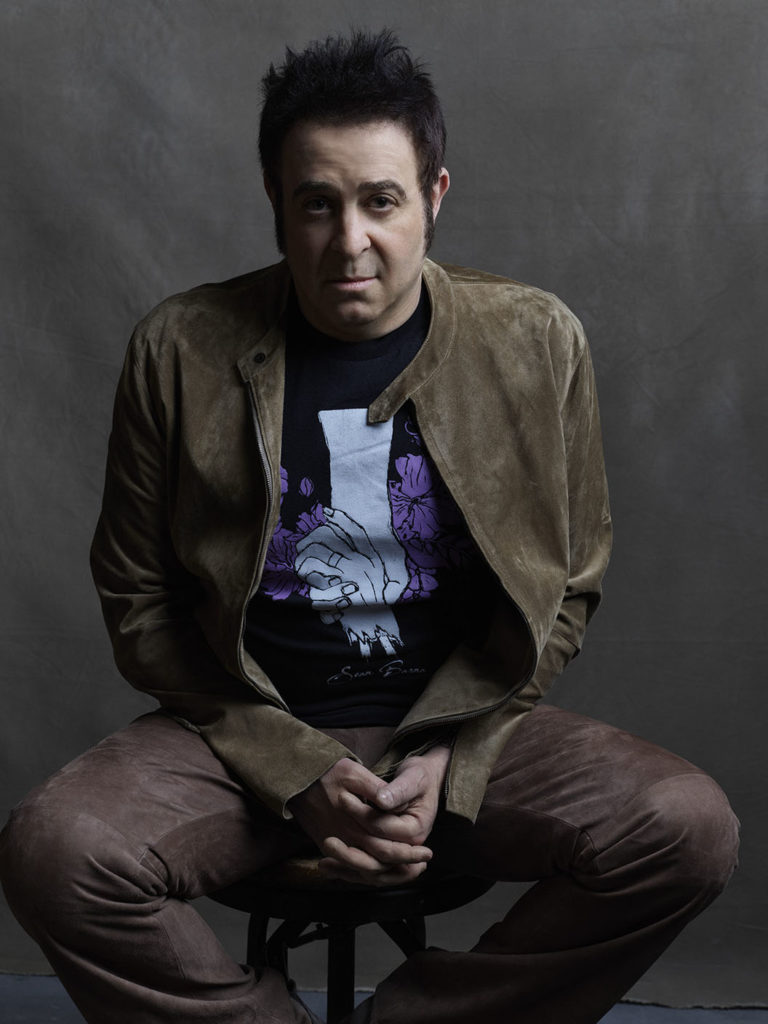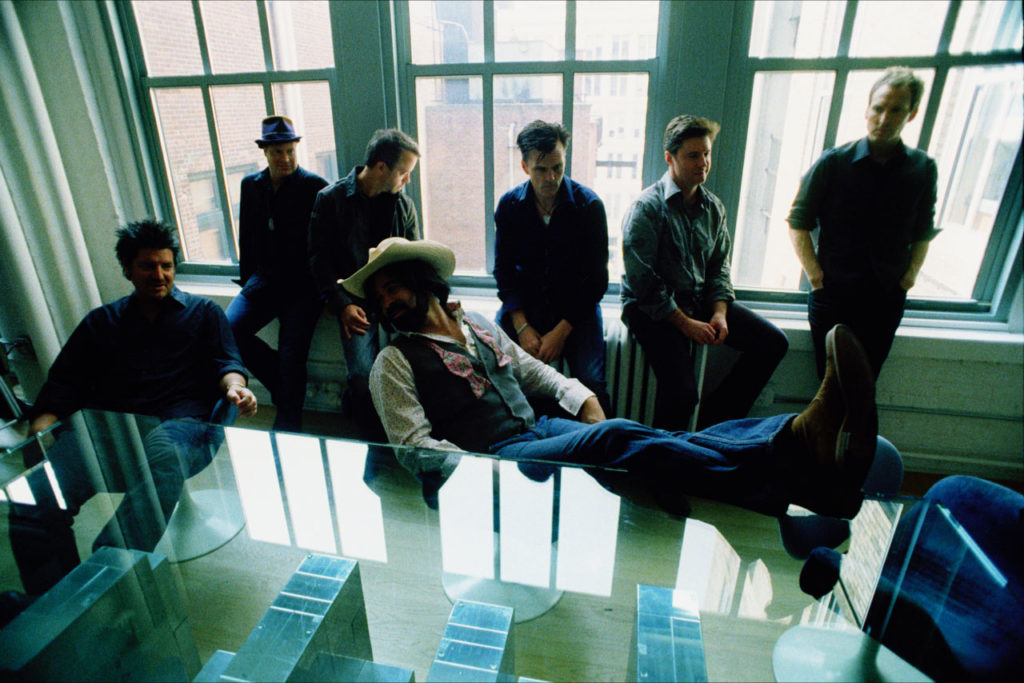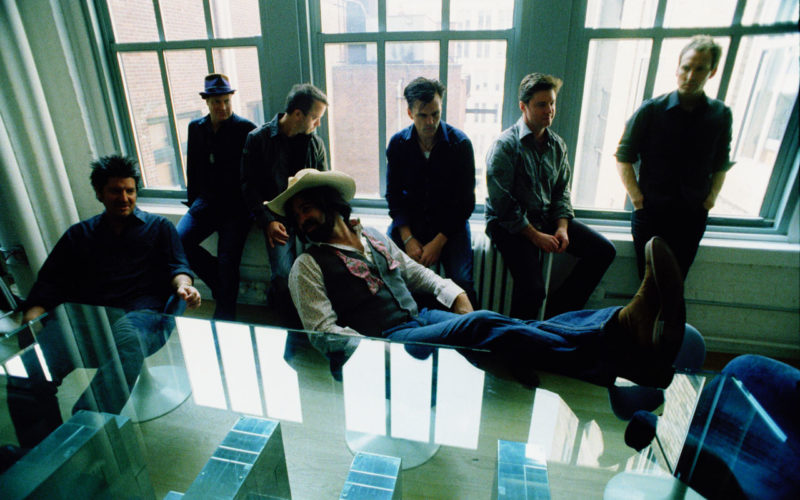The last time brothers John and TJ Osborne performed on the Walmart Arkansas Music Pavilion stage, it was the summer of 2016, and the duo were one of the support acts for country superstar Miranda Lambert. As Brothers Osborne prepare for their Rogers return on Sept. 17 — headlining their own “We’re Not For Everyone Tour” — frontman TJ marvels at the changes just a few years can bring.
“I mean, s***, it’s been almost two years since anyone’s really been out to tour,” Osborne points out. The duo’s third studio album, “Skeletons,” was released in October 2020, so that time away from the road allowed for space to really focus on the message and the aesthetic of the eventual tour, he shares.

“We’re at a really fun place where we can play a lot of our own music, and it’s either playing a hit or a song that’s very familiar to the crowd,” he says, “so I think the shows have gotten a lot better as far as the way the set list goes. We really stepped it up in so many ways, just across the board. The tour is a larger production and, I’m not just saying this, but we really did take a big step up from where we were last time touring to now.”
The tour gets its name from the fourth track on the brothers’ most recent release and has become something of a mission statement as they take on this new chapter.
“If ‘Pawn Shop’ was our introduction, and ‘Port Saint Joe’ was like the first conversation we had with someone over a beer, then ‘Skeletons’ is the moment where you start getting down to the real stuff and showing who you really are,” John says in the pair’s bio. “If you really want to get to know us, this is the record to do it.”
On “Skeletons,” Brothers Osborne chose to show some sides that some people knew existed but had never been featured in that way before, Osborne reveals. John, as the band’s versatile guitar hero, had never brought his vocals up from backing to lead before “I’m Not For Everyone.” And on “Muskrat Greene,” John gets another moment to shine.
“Even though we’re comprised of me being the singer and my brother being a guitar player … it’s not just someone holding a guitar. I mean, he’s a true guitar player — a guitar player’s guitar player,” Osborne says proudly of his brother. “So we always thought, ‘How the hell do we not have an instrumental?’ So we thought, let’s do that now; let’s put it out there like a really cool moment. And to those people [who] just want to hear this amazing guitar player wail, they’re just big music fans, it was kind of really for them.”
For the moment, Osborne says, the pair feel they are giving everyone what they want with this tour and this set list. There’s true rock-out moments, times when it breaks down to acoustic-driven, instrumental moments, heartfelt moments, party moments.
“There’s so much going on in this set right now that, honestly, I’m just emotionally and physically, mentally, exhausted when I get off the stage — in a good way,” Osborne confesses.
“I don’t want to have to be just a one-dynamic band or have one song that sounds like the same song over and over and over again,” he says. Besides, refusing to restrict themselves to any actual or perceived boundaries has given Brothers Osborne the freedom to pursue music that unites across philosophical or political differences — where everyone can come together for a good time.

“I do feel like we have gotten there as a band, which is something we’ve always wanted to do, creating a place where you can show up and just be whatever the hell you are, and you’ll be accepted.”
Acceptance may not be a word that often comes to mind when considering a genre that, particularly over recent years, has faced increasingly substantial indictments over gender and racial biases and stereotypes. In February, though, Osborne came out, making him the first openly gay artist signed to a major country music label. In the wake of sharing his news, Osborne has experienced an outpouring of love and support from both the country music community and its fans. With John’s candidness about his own mental health struggles, the Osborne brothers have found themselves at the center of some important conversations that those in the entertainment industry have traditionally shied away from.
“It really became apparent to us in both of our struggles, with me being closeted and my brother kind of dealing with these mental health issues in a private way, we realized that’s part of the problem, is no one’s talking about these things publicly,” Osborne says. “I think one of the biggest things that you need to realize in those moments, those dire moments, is that you’re just simply not alone … that other people are going through it, too. Sometimes it makes you feel crazy, that maybe there’s something wrong with me and not realizing that, while this is difficult and challenging, you’re not alone … And it’s just nice to have someone to relate to.
“I think to see, before your very eyes, two people who already had a public life and to see where our lives are now, having shared that, I hope is extremely encouraging,” he adds. “At the end of day, the money, the fame, the awards and all that, they pale in comparison to being able to make a change in any one person’s life.”
*****
Adam Duritz Wants You In His Club
As Brothers Osborne head out to their next engagement, Counting Crows will roll into the Walmart AMP for their first visit to Rogers since 2017.

The “Butter Miracle Tour” sees the alternative rockers supporting their first release in seven years: an EP of four songs meant to be performed one immediately after another — a suite. “Butter Miracle, Suite One” was around 85% finished when covid-19 broke out, lead singer and songwriter Adam Duritz reveals. The collection dropped in May, but by late July — as the band prepared to return to the road — they had still not performed the whole suite, beginning to end, together live.
“When we recorded the songs, we didn’t end each song. We would go into the first verse of the next song, and then we would stop. So we made sure the transitions worked, but we didn’t play the whole thing,” Duritz says of finally getting to record the songs last summer. “That’s like this exciting thing that’s still waiting out there for us that’s never been the case. We always have played the songs by the time we got to the tour. But this time, we’ve never done it. And so it’ll be a whole new experience still out there for us even after we released a record — which I’ve never experienced that before.”
Even the actualization process for the EP was unusual thanks to covid. It’s not in Duritz’s nature to hold onto songs or pieces of songs for a long time, he admits. For each new project, he typically writes the whole album around the same time, and then the band gets to work recording.
“I’d finished ‘Tall Grass,’ and the next day, I was playing it back, just trying to figure out if it was actually done or if there was more to it,” he recalls. “And then I just found myself singing this line, ‘Bobby was a kid from round the town,’ which is the beginning of ‘Elevator Boots,’ and I thought, ‘Oh, maybe this is a longer song like “Palisades Park.” It’s got this other section.’”
When he realized “Bobby” was leading him into another song, not just another section, Duritz was inspired to write a series of songs where the beginning of one is the ending of the one before. The first suite of “Butter Miracle” came together as “a bite-size piece of music that’s long, but you could sit in one sitting and listen to it,” Duritz says. At 18 minutes, the collection was longer than a song, but shorter than an album and gave the band the opportunity to explore something that had a reason to be shorter. It would still be several months, though, before the band could record together to see if what worked in Duritz’s imagination actually translated to the listening experience he was envisioning.
“There’s been a lot of talk in the last 15 to 20 years about how it’s better for bands to release singles than records. And probably, as far as the commerce of it goes, it is better, because people don’t seem to want to listen to records anymore. People want to just pick what they want, and so it’s harder to give them a whole thing,” Duritz muses. “But it doesn’t do you any good to know that it’s smarter to release a song if that’s not what you do well. We happen to do this one thing really well, which is create these worlds for people to climb into — albums. And people can get lost in them and really, that experience moves people. They like it. We’ve had some singles, but it’s more accidental than anything else.”

Clearly, people do like it. Coming up on three decades together shows the Crows are certainly doing something right. Duritz reminisces on Counting Crows’ first year of touring when the Rolling Stones invited the new band to open for them. The first gig of that tour, at the RFK Stadium in Washington, D.C., was on Duritz’s 30th birthday. He remembers thinking, “How do you make a band that lasts 30 years? That seems impossible to have a band be alive as long as I am.”
“And now here I am, and it’s been almost 30 years, and we’re still here and we’ve got a song that’s No. 1, and that’s pretty crazy,” he says of “Elevator Boots” landing at No. 1 on Billboard’s Adult Alternative Airplay chart.
One might wonder if Counting Crows, as a band that found massive breakout fame in the early 1990s, is benefiting from the wave of nostalgia for the era that seems to be taking over pop culture. But Duritz isn’t interested in any of that.
“I enjoy social media; I’ve always thought it was a great thing. It enables people to connect directly to their audience instead of through intermediaries. … But the downside of it is it’s this great cultural thing where we all want to get together and agree,” he poses. “We all want to look at a meme and go, ‘Yep, me too.’ It’s this great homogeneity of things.
“I just kind of find the whole thing — all the mass cultural discussions where we nod and smile about something that we all know is funny now — I’m just bored by it. I don’t care which nostalgia it is, I’m not nostalgic for something along with everybody else. I don’t want to do anything with everybody else.
“There were bands I loved during the ’90s; I bet they’re not the ones [the masses are] nostalgic for. The same thing was true in the ’90s. I have my own tastes. I want to be excited about stuff — I want to enjoy music and the arts and movies and s***. I just kind of don’t want to be in any club with everybody else,” he says adamantly, before adding with a smile: “Except if it’s our club. I would really love that. That’s the only one.”
__
FAQ
Brothers Osborne
‘We’re Not For Everyone Tour’
WHEN — 7:30 p.m. Sept. 17
COST — $29.50-$89.50
ALSO WITH — Travis Denning and Tenille Townes
Counting Crows
‘Butter Miracle Tour’
WHEN — 7 p.m. Sept. 18
COST — $35-$129.50
ALSO WITH — Sean Barna and Matt Sucich
WHERE — Walmart AMP, 5079 W. Northgate Road in Rogers
INFO — 443-5600, arkansasmusicpavilion.com
FYI — Proof of a negative covid-19 test within 72 hours of showtime, or confirmation of full vaccination is required for the Crows concert.










